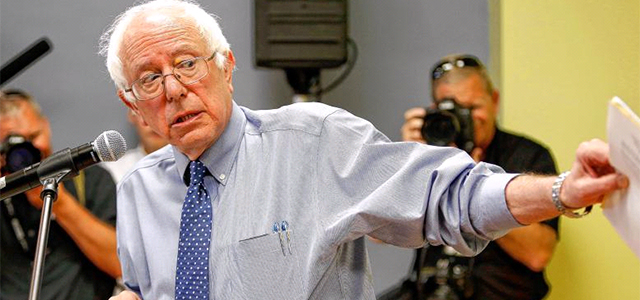News
Tax pushed by Sanders is a sensible idea

A pot of gold big enough to repair the nation’s crumbling infrastructure, provide middle-class tax relief or provide free tuition to public universities is waiting to be tapped. All Congress has to do is say the word. But the hoard is guarded by the people writer Tom Wolfe called the Masters of the Universe, the Wall Street traders, brokers and hedge fund managers who earn in a day what working stiffs earn in a year. People with the money to influence Congress.
A financial transaction tax, a tiny surcharge on the sale of stocks, bonds, derivatives, treasury securities and other financial instruments traded daily in vast quantities could, by different estimates, raise $50 billion to $350 billion per year in a way that for most taxpayers would be painless. Nearly two-dozen nations levy an FTT and 11 members of the European Union plan to have one in place next January.
The United States, which had an FTT from 1914 to 1966, will re-institute the tax if Vermont Senator and Democratic presidential candidate Bernie Sanders gets his way. Barring campaign finance reform or a mass uprising against America’s growing income inequality, he probably won’t. K Street lobbyists will load their trebuchets with bags of Wall Street cash, lob them at members of Congress and back the opponents of members who don’t see things their way.
That doesn’t mean that a financial transaction tax isn’t a good idea. It is.
Sure, it’s being pushed by progressives like Massachusetts Sen. Elizabeth Warren and Maryland Rep. Chris Van Hollen, but it’s also backed by Bill Gates, Warren Buffett, Sheila Bair (former head of the Federal Deposit Insurance Corporation), John Bogle (founder of the Vanguard Group), Nobel laureate economists Joseph Stiglitz and Paul Krugman, and Republicans Paul Volker (former chairman of the Federal Reserve) and David Stockman (former director of the Office of Management and Budget), among others.
An FTT would raise a lot of sorely needed money that might otherwise have to be borrowed. It would serve as a check on the kind of irresponsible investing that nearly brought down the economy and led to the bailout of much of Wall Street and the auto industry. It would reduce the high-volume computer-controlled investing blamed for wild swings in the market. And it would be paid almost entirely by the financial services industry.
Talk that it would drain people’s 401(k)s is fear mongering. The tax paid on trading in those accounts would amount to a few bucks per year for most savers. That loss, under some proposals, would be more than offset by increases in tax credits and deductions for middle-class households.
Most Americans pay a sales tax on all sorts of purchases. New Hampshire residents and visitors pay one on rooms, meals, alcohol, tobacco, real estate sales, electricity or even a donut if one buys fewer than six. The sale of stocks and the like should be taxed, too. Candidate Sanders is pushing a good idea. His rivals in both parties should let voters know their position on it.